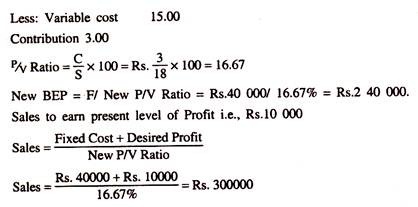Blockchain and the future of accountancy

Equally important are problem-solving, analytical thinking, and effective communication. Easy configuration allows your to automatically classify over 90% of your transactions, spam filters decrease noise. Integral what are generally accepted accounting principles gaap connects with all your crypto accounts and your ERP, making it easy to get a precise and complete picture of your crypto business. The Accounting industry will undergo training programs to upskill their employees.
- The author Andy Rosen and the editor owned Bitcoin and Ethereum at the time of publication.
- In addition, the platform keeps almost all of its users’ digital assets in offline cold storage, meaning that cryptos are distributed into safe deposit boxes and vaults around the world.
- TokenTax is also suited for businesses that accept cryptocurrency payments, as it can help them manage their accounting and financial reporting requirements.
- With QuickBooks Enterprise, business owners can set up volume discounts and customize pricing rules according to sales rep, item category or customer in the Platinum plan and up.
- Accountants can create custom algorithms and deploy them on the blockchains for specific functions.
Essential Features for Digital Asset Finance Platforms
In December 2017, SEC Chairman Jay Clayton stated that ICOs are vulnerable to fraud and manipulation because there is less investor protection than in the stock market (Clayton, 2017). As such, a literature review on the status of blockchain in accounting is both topical and timely. The insights provided into this emerging technology will have implications for the accounting ecosystem–some beneficial, https://www.personal-accounting.org/ others challenging. Hopefully, this SLR will serve as a helpful baseline for practitioners, professionals and academics as we navigate the next potential revolution in accounting information systems. Using modern tech, it simplifies tasks like corporate tax calculations and financial reports. Blockchain Accounting is a new way of keeping financial records that uses Blockchain technology.
What is cryptocurrency accounting software?
However, BitPay is solely a payment platform not an exchange, so it does not have the capability for its users to buy and sell cryptocurrencies. Keep on reading for a cryptocurrency exchange to use in conjunction with BitPay. Utilizing subledgers to track your crypto investments separately from your other accounting records is a great way to stay organized. But subledgers also create an easy way for you to track who you are paying and who has paid you.
Stripe vs Square: Which One to Choose for Your Online Business?
There’s also an Apple Watch app that lets you track time, send payment reminders and review outstanding invoices. In particular, entrepreneurs trying to measure performance in different segments of their business will like QuickBooks’ granular transaction tracking tools that let you group transactions by department or location, among other categories. Reporting capabilities increase with each plan, but even the least expensive Simple Start plan includes more than 50 reports. Stellar boasts a “universe of opportunities” for developers interested in creating financial access. Its open network offers speed, affordability and utility, the Stellar website states. Users can employ Stellar to connect with both fiat and crypto institutions with a single integration, and fintech organizations can use Stellar to “enhance, not supplant” the global financial system, the website says.
It is a potentially disruptive technology that has begun to have dramatic impacts on the business models and market structures of many industries (Casey and Vigna, 2018), including accounting (Bonsón and Bednárová, 2019; Deloitte, 2016). However, the wealth of information produced about blockchain can make it challenging for researchers to stay up-to-date with the latest developments (Cai et al., 2019; Linnenluecke et al., 2020). In these circumstances, the role of a structured literature review (SLR) of emerging research of blockchain in accounting should be a helpful tool (Cai et al., 2019; Moro et al., 2015). Similarly, the Hyperledger Fabric blockchain—a joint project by Linux Foundation, IBM, Intel, Microsoft and many other enterprises—is a permissioned blockchain that maintains public attributes commonly employed in the open-source software ecosystem. Another essential feature of a crypto finance platform is that it can support multiple asset types.

Streamline journaling and reconciling crypto transactions
Furthermore, accountants will be required to understand the working of smart contracts in a blockchain network. Blockchain accounting uses smart contracts, a program that executes the functions automatically. Moreover, this advanced technology helps to streamline audit and financial reporting processes. With a distributed ledger that is shared among members of a network, time-wasting record reconciliations are eliminated. And to speed transactions, a set of rules that are called a smart contract can be stored on the blockchain and run automatically. Cryptio lets you track all of your transactions from your wallets, crypto payment tools, exchanges, or custodians, and translate the data into records that are connected to your accounting software.

One more point to add here, is that the decentralized nature of blockchain makes it much more resistant to cyberattacks compared to centralized databases. The role of cybersecurity, or more precisely, data security in blockchain networks is integral to today’s publicly (and privately) used distributed ledger technologies. Below, we’ve combined a list of best practices and frameworks that both enterprises and network administrators can use to enhance their blockchain security moving forward. Smart contracts, in fact, are thought to be the first non-cryptocurrency use of a blockchain platform, and that platform was Ethereum.
This blockchain platform from tech mainstay IBM offers “trusted data exchange and workflow automation beyond the boundaries with distributed ledger technology and blockchain,” its website says. These, in turn, enable operational agility and the possibilities of new revenue streams, the company says. However, some researchers are not convinced that blockchain will dramatically impact the auditing profession. Rather, they suggest that auditing will take on new features and become more complicated (Dai et al., 2019; Issa et al., 2016).
Andy Rosen is a former NerdWallet writer who covered taxes, cryptocurrency investing and alternative assets. He has more than 15 years of experience as a reporter and editor covering business, government, law enforcement and the intersection between money and ideas. In these roles, Andy has seen cryptocurrency develop from an experimental dark-web technology into an accepted part of the global financial system. It will be important to monitor the progress in the take-up of blockchain in the future (Bonsón et al., 2019; Gietzmann and Grossetti, 2019; Bonsón and Bednárová, 2019).
As blockchain accounting is new, the regulations regarding cryptocurrencies and blockchain tech in general are still under consideration. It means the adoption of the technology by businesses as well as investments is hindered by the lack of certainty about compliance requirements. Blockchain security is designed specifically to protect a blockchain network from infiltration and attacks from cybercriminals and threat agents. Equally, blockchains use their inherent security protocols to provide transparency and immutability.
This reduces risks for all parties who use blockchain technology for accounting purposes. It also saves businesses a lot of time from having to deal with fraud or trying to collect money from dishonest organizations. With smart contracts, transactions automatically go through when certain conditions are met. This helps accounting professionals and organizations automate jobs like payroll and reconciliations.This would save organizations on costs linked to manual entry errors such as administrative expenses. A GL includes all the assets, liabilities, equity, expense, and income ledgers, which make up a complete set of the financial transactions records. The subject of cryptocurrency is complex, and its decentralized nature means there are a number of regulatory issues accountants will eventually have to deal with.
However, it’s also one of the most secure and cost-effective solutions available for businesses today. Ultimately, if done correctly, implementing a blockchain-based accounting system will offer more efficient processes https://www.online-accounting.net/forensic-accounting/ and improved transactional accuracy for businesses worldwide. Organizations should also be aware of potential scalability issues since blockchains can become congested if too many users try to use them simultaneously.
Of course, for blockchain technology to enable continuous auditing and for it to give auditors a better understanding of their clients’ businesses, companies will need to record all transactions on the blockchain (Schmitz and Leoni, 2019). After all, “real-time auditing” can only be delivered to the degree that transactions are recorded on the blockchain. Hence, if transparency is key, implementing blockchain may help to enhance a company’s competitive advantage (Deloitte, 2019), and it should certainly help to cultivate trust between market participants (Yu et al., 2018). In blockchain, the transaction verification process is not managed centrally.
From exchange and custody solutions to payment apps and mining software, we have recommended the best options for you. Many popular accounting programs have the option to record transactions in multiple fiat currencies, such as US dollars (USD), euros (EUR), and Canadian dollars (CAD). You cannot use this function to account for cryptocurrency because it isn’t considered a fiat currency—and treating crypto as a fiat currency will result in a misstatement of your US tax liability and likely result in penalties. Crypto compliance has become a major focus of the IRS, per the IRS’s digital assets page. Small and midsize businesses (SMBs) conducting business in cryptocurrency, such as accepting crypto from customers or paying vendors with crypto, face some very challenging and unique tax and accounting requirements. In the United States, cryptocurrency isn’t treated as a true currency but as an investment asset.

